
Spaces of Hope – 1st summer school of the integrated research training group
The first summer school of the integrated research training group of the Collaborative Research Centre (CRC) 1265, titled “Spaces of Hope. Critical Perspectives on Spatial (Trans)Formations” took place in Berlin from the 11th to the 13th of September 2019 and brought together young researchers from all over the world. The following report gives a brief insight about the activities and research topics addressed during the summer school.
In 2018, the idea for a summer school emerged from a reading circle on critical geography at the Graduate School of the Collaborative Research Centre (CRC 1265) “Re-Figuration of Spaces”. A summer school, the initiators thought, would be a suitable framework, to find a subject, which, on the one hand, helps to reveal a point of connection amongst our individual PhD projects and, on the other hand, discusses topics that have received little attention at the CRC so far. These included postcolonial perspectives on spatial (trans)formations, trans-local solidarity networks and social movements, resistance and utopic thought. In times of escalating socio-spatial inequality and the global backlash of regressive politics, the summer school wanted to engage with alternative and progressive forms of spatial (trans)formations.
The summer school brought together academic, activist, and artistic
perspectives and encouraged a critical debate on how a transdisciplinary focus
on space allows us to explore new perspectives on counter-hegemonic practices,
utopian thought and imagination. Inspired by David Harvey’s Spaces of Hope
(2000), the summer school engaged with emancipatory practices, acts of
resistance, and visions of alternative futures that evolve from ongoing
processes of socio-spatial re-figuration, by foregrounding postcolonial and
intersectional approaches.
During
three days, the summer school initiated collective discussions on understanding
and theorizing Spaces of Hope in
contemporary contexts, encouraging participants to reflect their own research.
From September 11th to 13th, 2019, 35 participants from 14 different countries (Argentina, Australia, Brazil, Egypt, France, Germany, India, Israel, Kenya, Great Britain, Pakistan, South Africa, Thailand, USA) worked together in panels, reading sessions, city walks and debates with artists and activists. After Johanna Hoerning, Principal Investigator and Spokeswoman of Project Area C “Circulation and Order” had welcomed the participants of the summer school in the name of the CRC, we had the pleasure to introduce our first keynote speaker David Featherstone, who made the start with a talk on transnational solidarities. A video recording of the lecture is available here:
Afterwards, we made our way to the first highlight of our summer school: A boat tour with the Anarche, a self-built and collectively operated raft. During the trip, the participants could get to know various places of urban conflict and resistance in Berlin from the river Spree. Janina Dobrusskin, Valentin Domann, Sebastian Hilf and Paul Welch Guerra, reported on the history and construction of the Anarche itself, how it´s history entwines with past and current conflicts in and around the bay area of “Rummelsburger Bucht”, on the emergence of the “Holzmarkt” project and on the history of the brown fields and squats of “Cuvry-Brache” and “Teepeeland”.
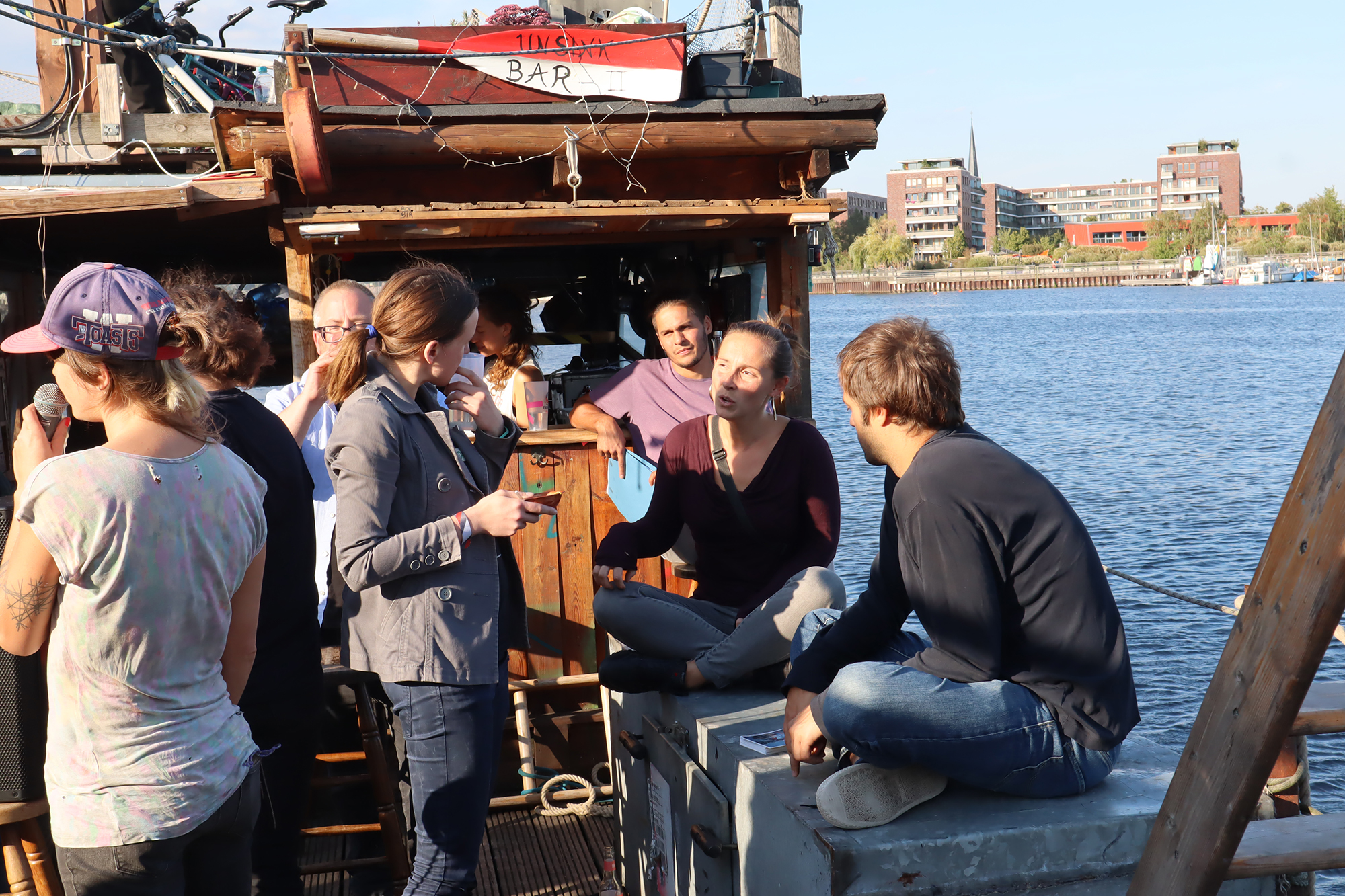
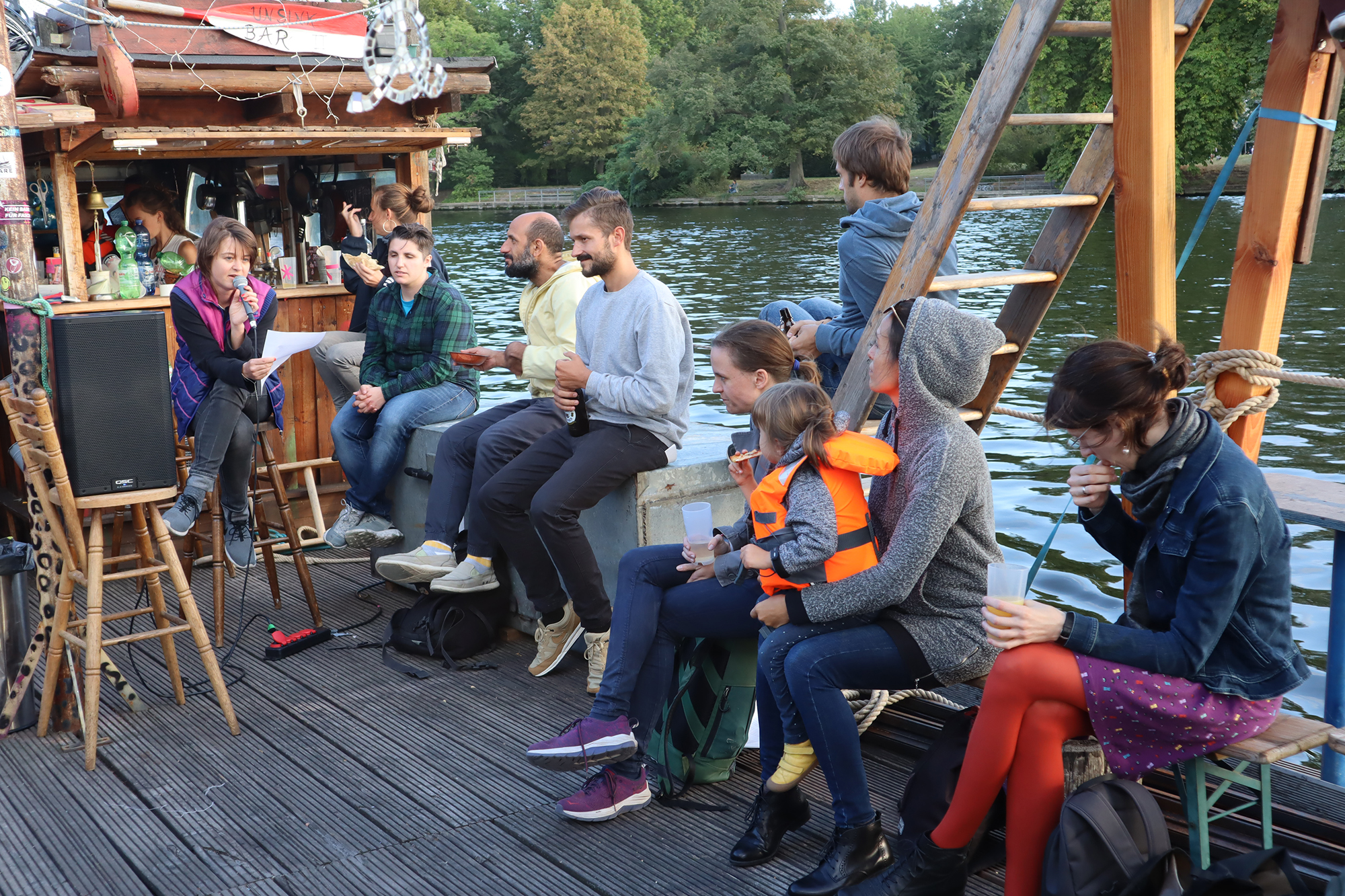
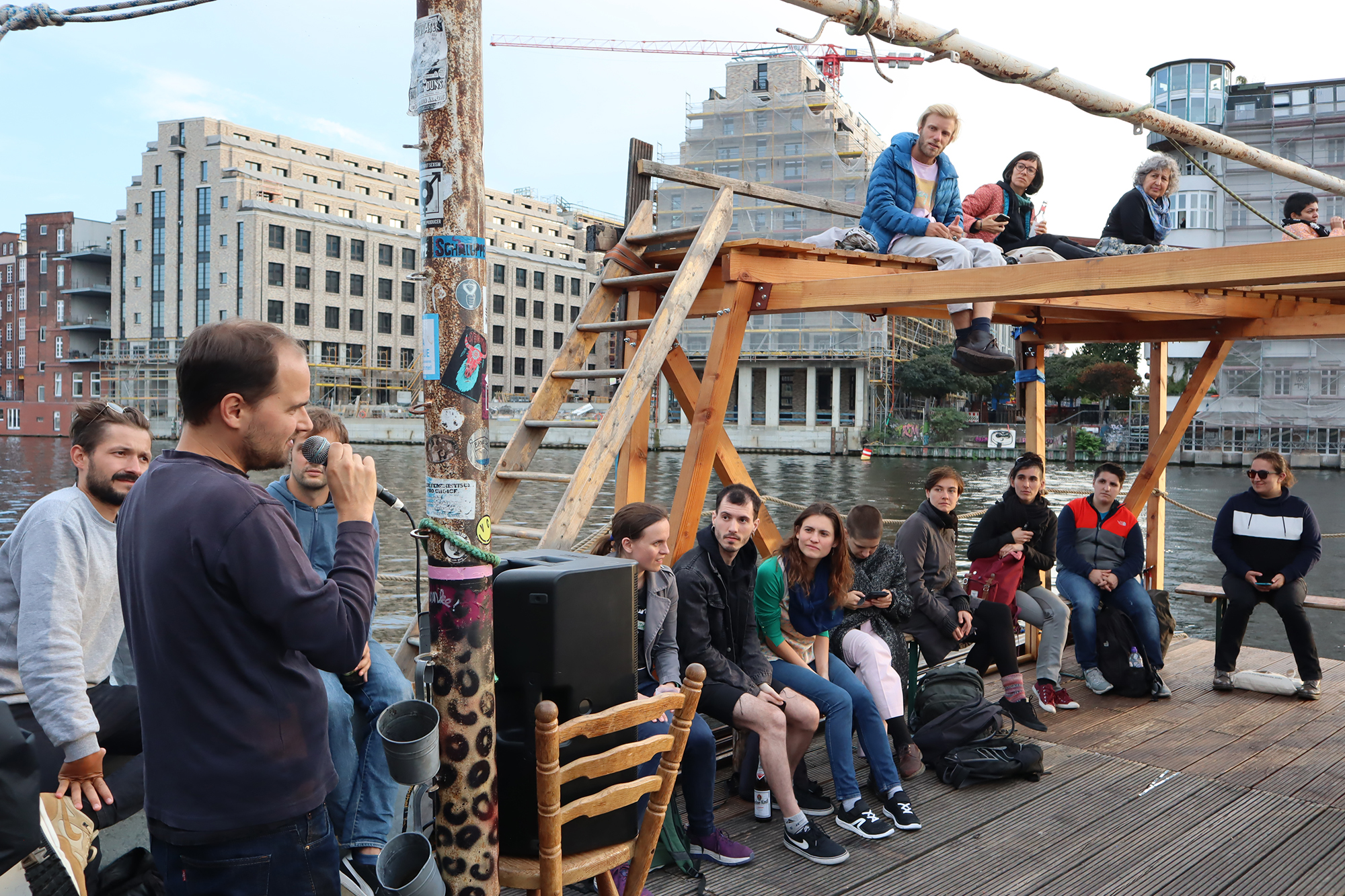

The second day started with small group discussions on issues of resources, representation, and the role of networks and temporal dynamics of Spaces of Hope. In the afternoon, the participants gathered in small groups and went on field trips to get to re-visit the places presented during the boat trip the day before. Local activists showed and discussed further details about the projects with our participants.
On the excursion to the former squat area of Cuvry-Brache, a longtime resident reported on the history of the approx. 10,000 m² area in Kreuzberg, its occupation and the emergence of the squat which was vacated in September 2014, up to the emergence of the Cuvry Campus, which will be occupied by Zalando and Co. starting next year.
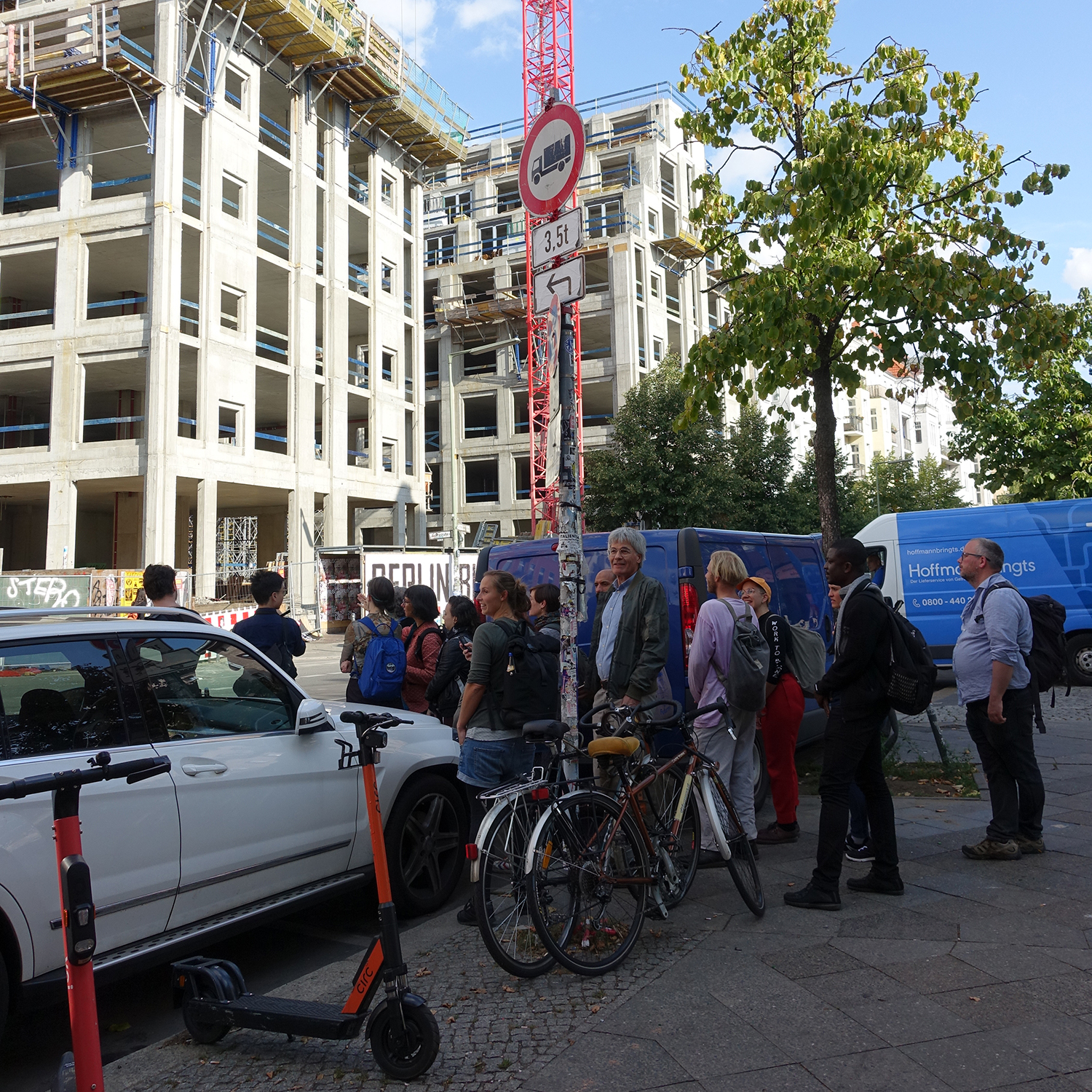
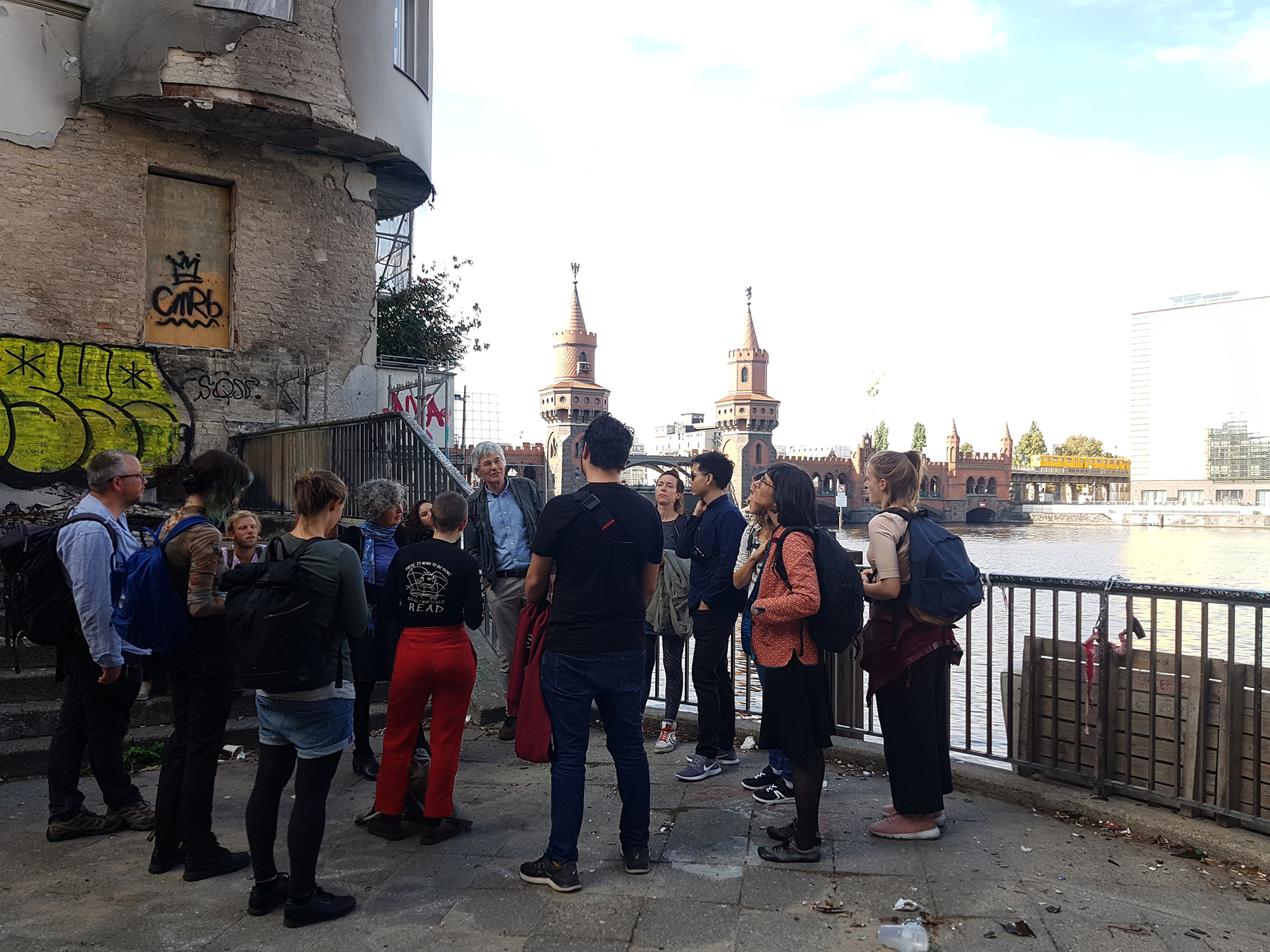
Not far from the former Cuvry-Brache and next to the Spree, the grassroots and non-commercial residential and cultural project Teepeeland can be found. Former residents of the Cuvry-Brache built their new homes on that site, including huts, tents, planting beds and hen houses.
Another excursion visited the contested site of “Dragonerareal” in Kreuzberg and got to know the initiative “Stadt von unten” (City from below). The participants were able to discover a positive example of a non-parliamentary participation of citizens in urban development, learning about the urban planning workshop procedure taking place there, with residents, activists and urban planners since summer of 2019.


During a guided tour of the Holzmarkt area, participants gained an exciting and in-depth insight into a relatively established and widely discussed project. A member of the Holzmarkt-cooperation explained the financial and organisational structure of the project, its history from the well-known Bar25 to today’s Holzmarkt as well as the various uses on site.
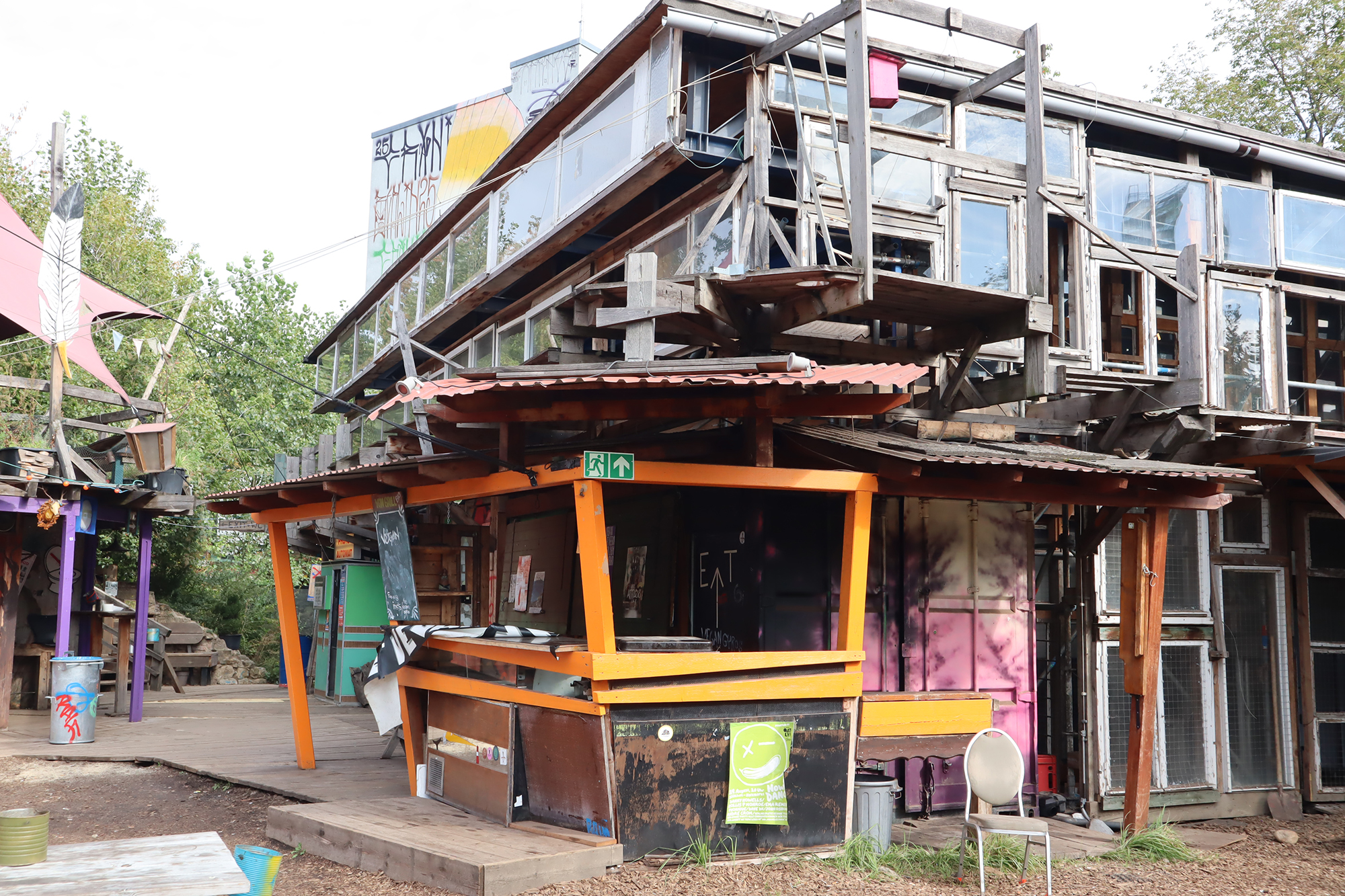
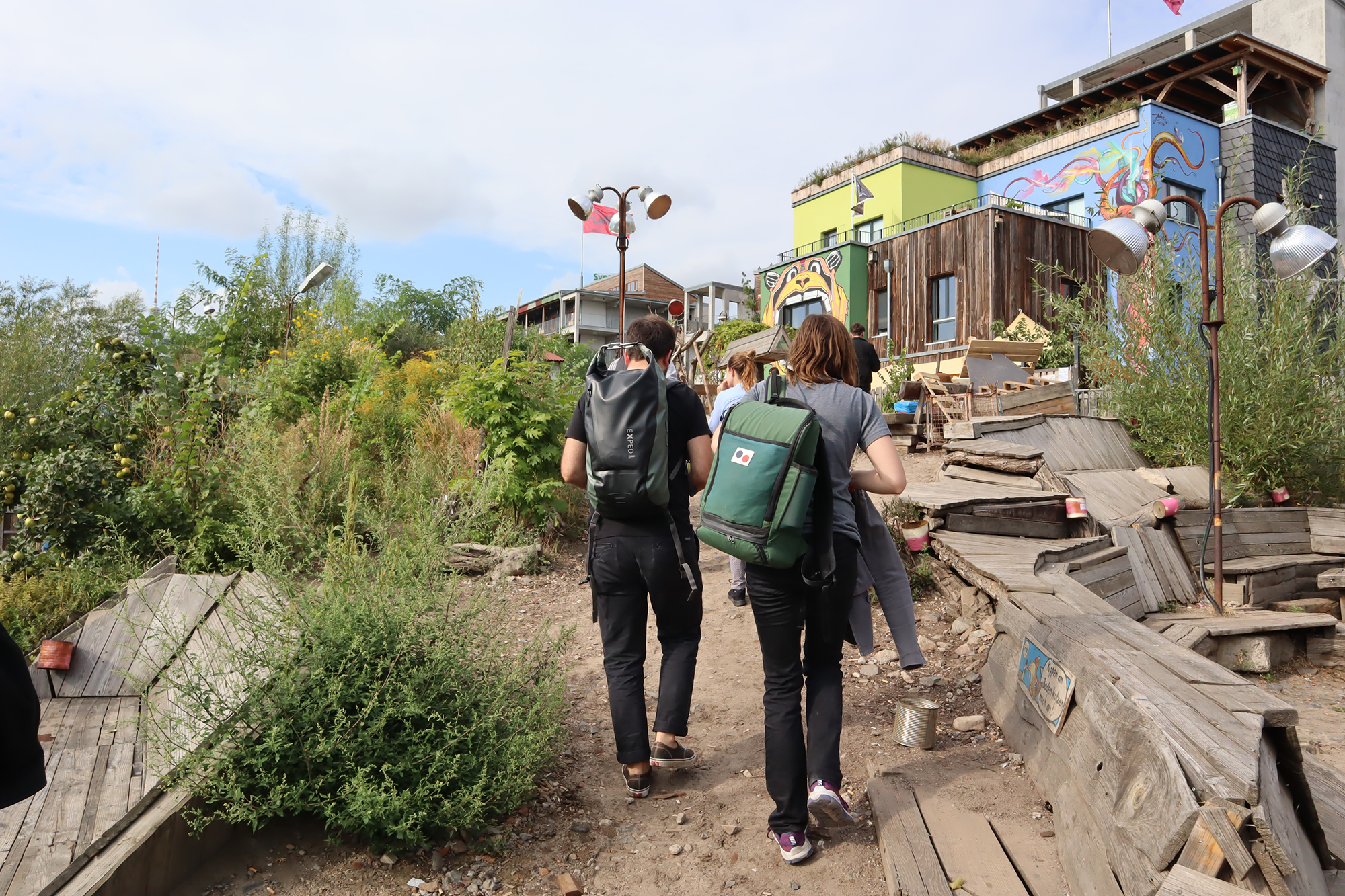
In all the excursion groups, topics and questions from the group work that took place in the morning were discussed and deepened further.
The public keynote lecture on “Topographies of Hope” by Cindi Katz at Haus der Kulturen der Welt (HKW) concluded the second day.
Friday began with a second group work phase in which the participants exchanged their impressions of the previous day’s excursions. Afterwards, central insights and questions from the thematic small groups were presented and discussed in the plenum.
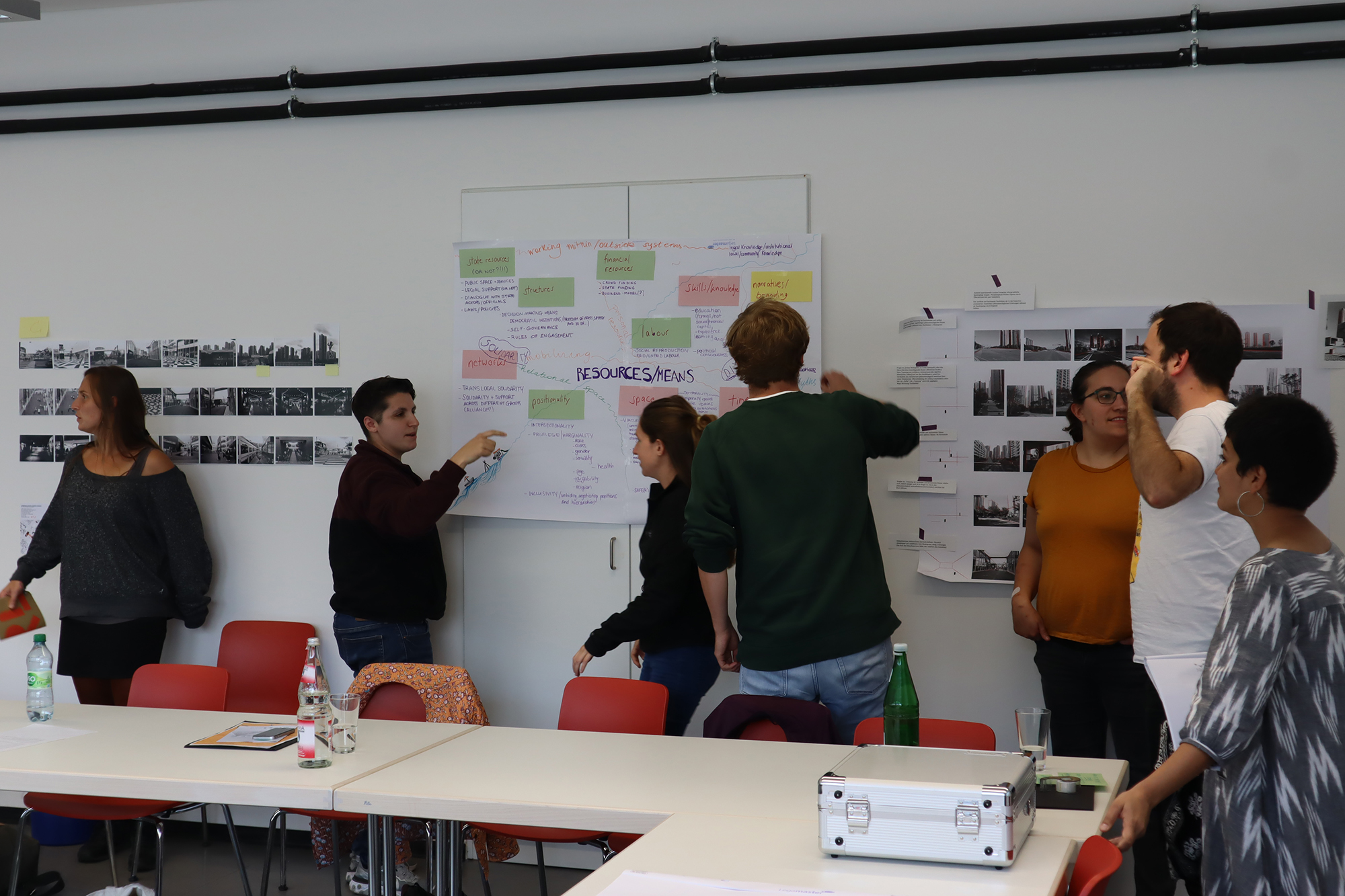

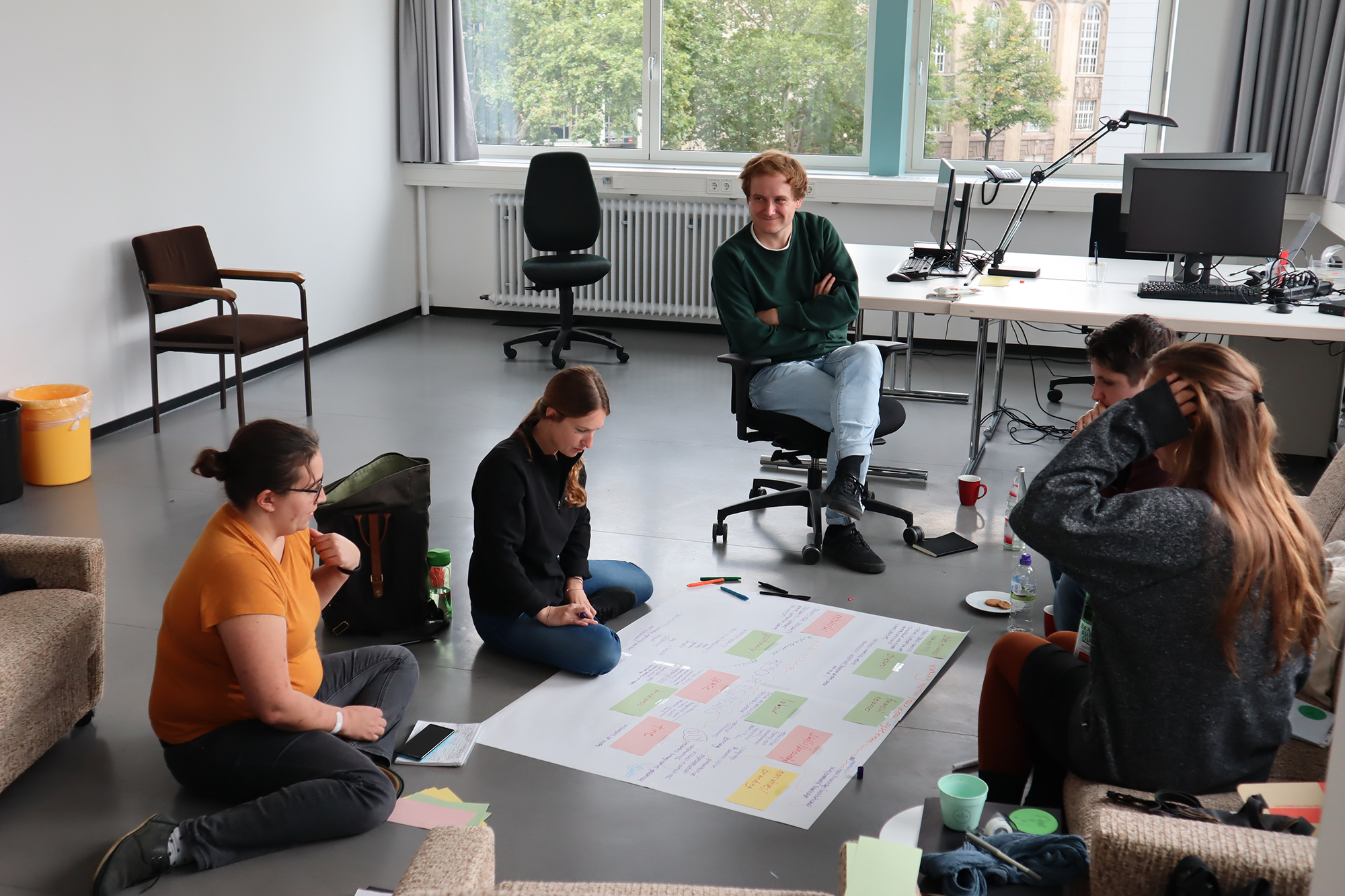
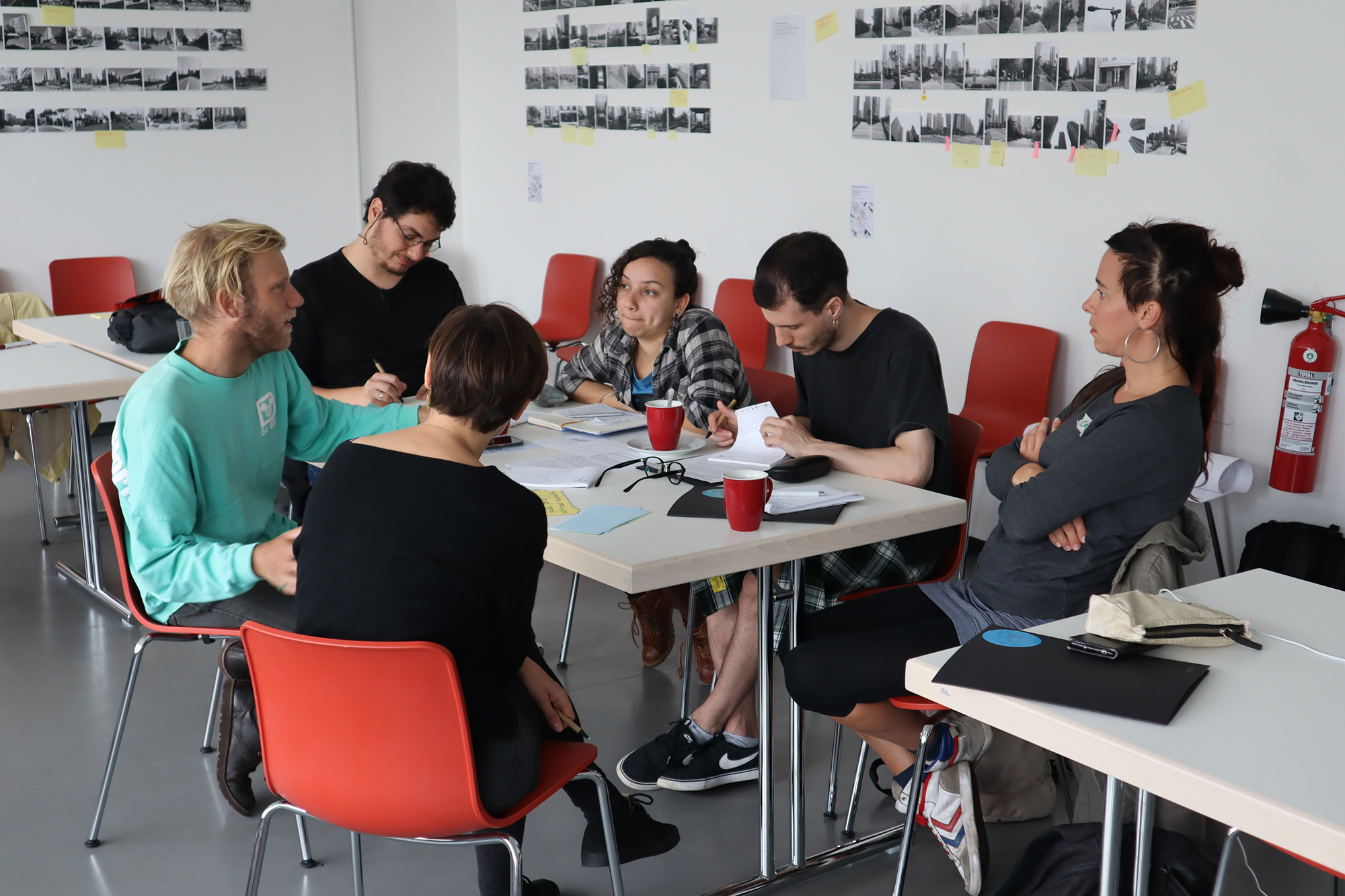
The summer school program ended with a live-broadcast at CASHMERE RADIO, an experimental community radio station in Lichtenberg. The program consisted of a short review of our summer school by Claudia Mock and Volkan Sayman, a talk and performance on water politics in Nairobi by the Kenyan artist Rogan Anjili, as well as an interview and sound performance „Soundscapes of Resistance: Joseph Kamaru“ by Kmru and Claudia Mock. Last but not least David Tinning the co-founder of Santuri Safari East Africa closed the night with music.
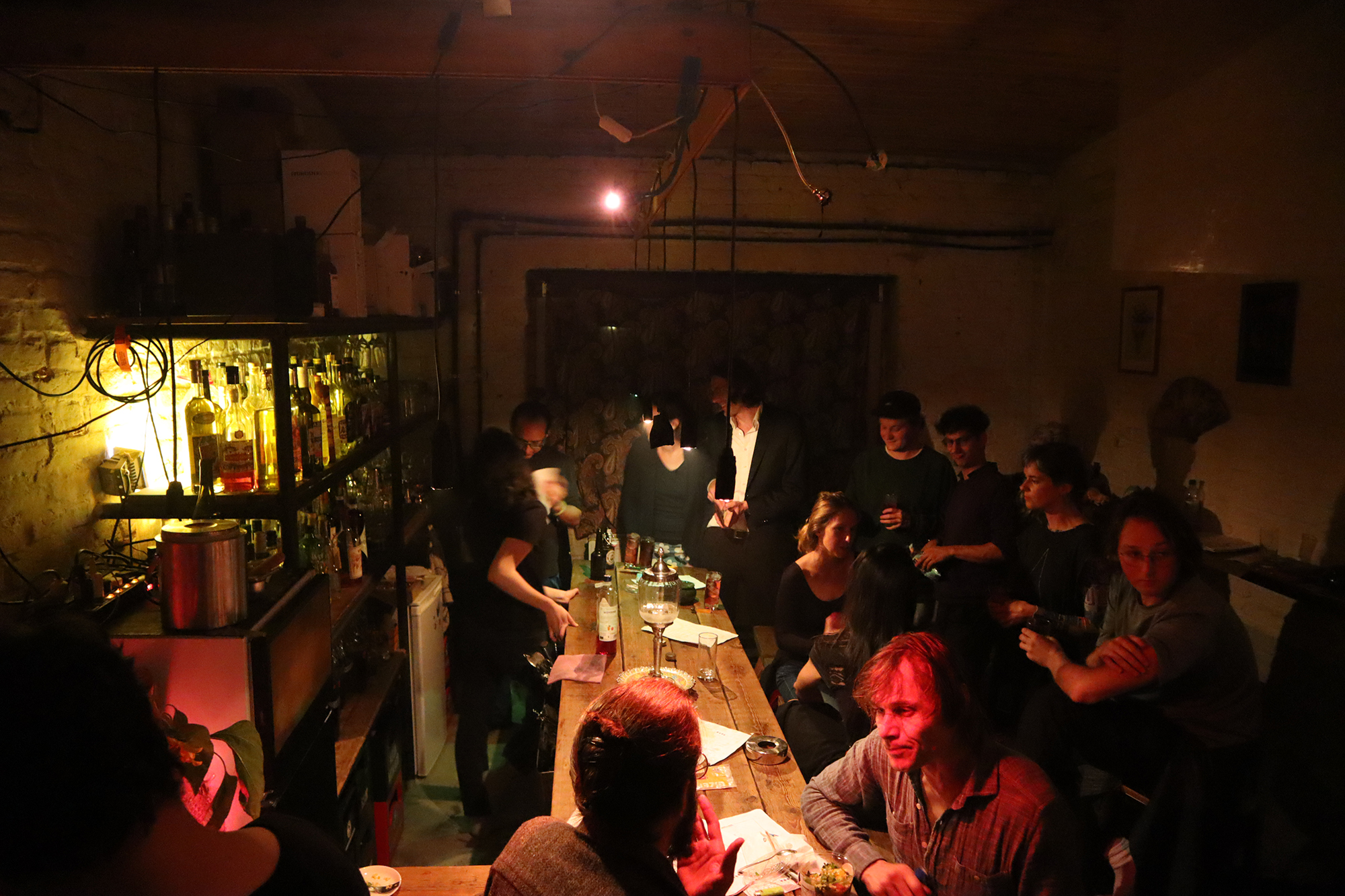

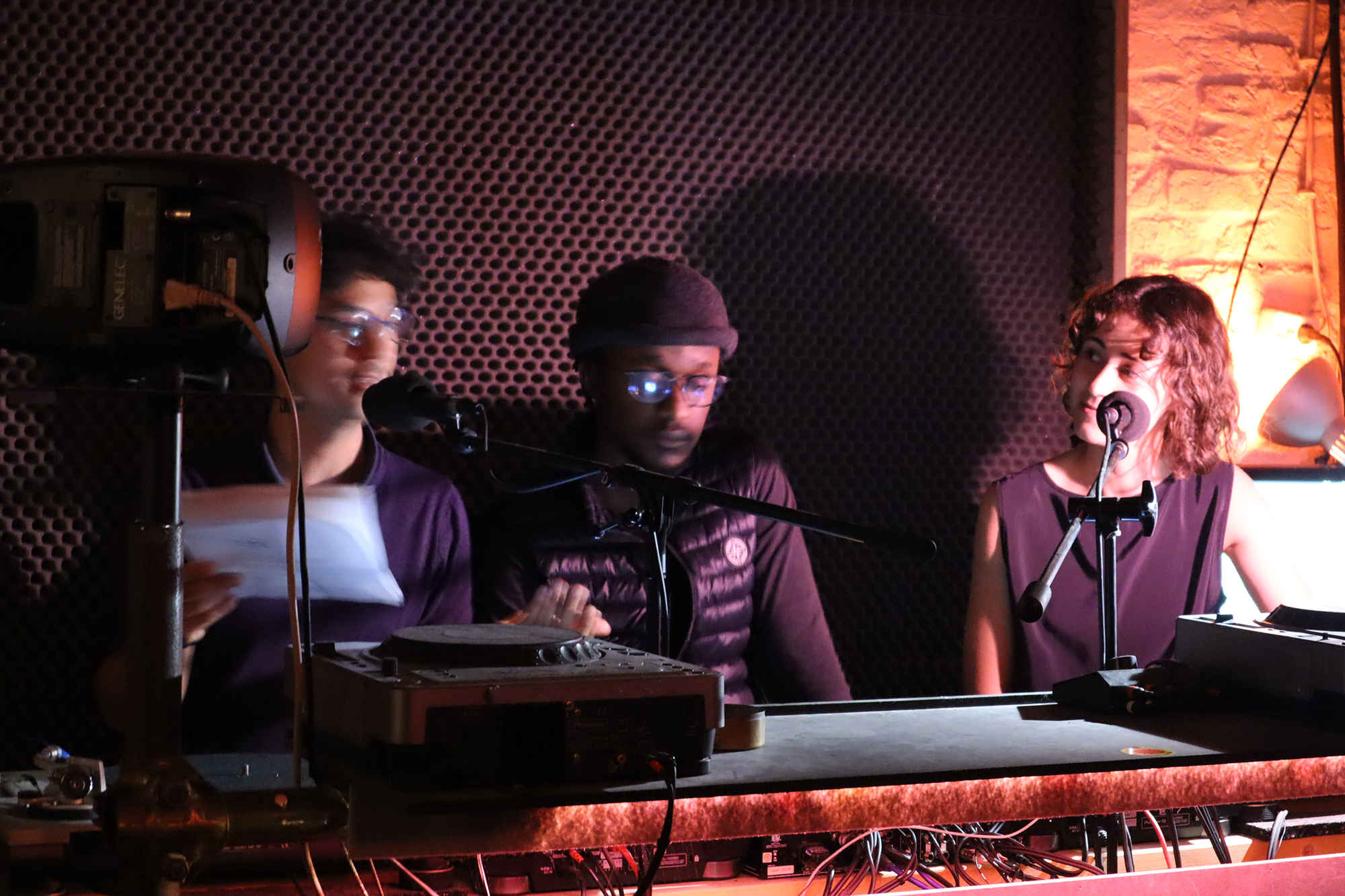
Overall, the summer school sparked many critical debates and brought new impulses for our individual and collective work at the CRC. The combination of excursions and discussions was particularly appreciated. This approach enabled an exchange among all participants on an equal footing, without squeezing discussions into a rigid framework. At the same time, all participants contributed their individual research questions to the thematic fields of resources, representations, networks and temporality.
At the end, the three days seemed very short to all participants and we consider that a good sign! We are incredibly pleased about the successful summer school and the exciting exchange with researchers from all over the world.
We are looking forward to organize our second summer school next year!
Miro Born, Janina Dobrusskin, Yannik Ecker, Lukas Elsner, Julia Fülling, Christopher Heidecke, Dariya Kryshen, Sophie Mélix, Claudia Mock, Volkan Sayman, Paula Schmidt-Faber, Paul Welch Guerra


